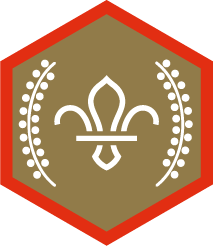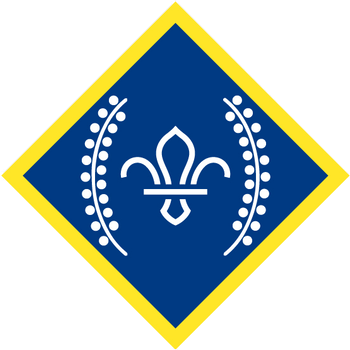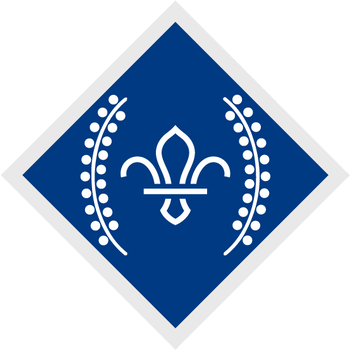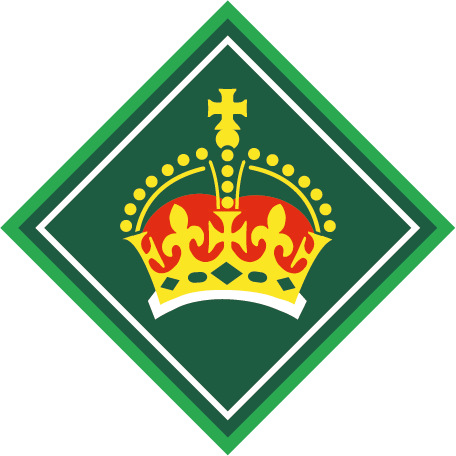Awards celebrations
You’ll need
- Device with access to the internet
- Prepared presentation (optional)
Before you begin
- Use the safety checklist to help you plan and risk assess your activity. Additional help to carry out your risk assessment, including examples can be found here. Don’t forget to make sure all young people and adults involved in the activity know how to take part safely.
- Make sure you’ll have enough adult helpers. You may need some parents and carers to help if you’re short on helpers.
Sort out the basics
- Choose a date and time for your event. Think about making it short and sweet: keep it under an hour, unless you’re planning in some interactive activities.
- Decide who you’re celebrating. Do you want to focus on youth top awards, or plan an event to celebrate adult awards too?
- If you’re planning a District, County, or Area event, do you want to bring all the sections together or have separate events for each section?
- Do you want to go formal or keep it informal and relaxed? Should people wear their uniform?
- Will you have a theme, such as an Oscar Awards or woodland creature party? Especially if your event is for younger sections, a party theme could help everyone get into a celebratory mood. People could bring some party food and make their own party hat to wear.
Prepare any resources
- You can download videos of our UK Section Advisors awarding top awards from the video library on the Scout brand centre.
- You can find branded PowerPoint templates on the Scout brand centre.
- You could use photos of the people getting badges and awards in a presentation. People could send you photos of themselves or photos of themselves completing their awards – just make sure you’ve got consent to share. If you’ve got time, you could pop the photos into a video or slideshow.
Invite the guests
- You may want to invite someone special to give an extra sense of the value of what people have achieved. You could invite someone from inside Scouts (for example, your County Commissioner), or someone external. If they can’t make it to the event, they could always record a message for you to share.
- Why not inspire young people to go on to their next challenge by inviting someone who’s already taken it a step further? Someone from the next section (or someone who’s achieved the next award) could share their story. What were their favourite moments? What were they most proud of?
Running your event
- Welcome everyone. Now is a good chance to introduce any special guests.
- If you want to have food and drink or play some games to celebrate, you can work your schedule around the time you have available.
- Remember to leave lots of time to present the awards and ask people to bring in photos or talk about the badges they did at home.
- You could invite parents and carers to watch the awards being given out - don't forget to get any mascots involved, too!
Giving out the awards
- Start with a quick introduction about the awards being celebrated.
- You could share images of the badges themselves.
- One by one you could invite up and introduce the people who've earned badges and awards. Either you or they may want to explain what they’ve achieved. They could share lots of pictures or talk about what they’ve done if they feel comfortable doing so. Try to make some time to congratulate everyone individually.
- Invite any special guests to share a message. You could play a video from the Scout brand centre.
- Ask everyone to reflect on what they’ve done to achieve their award. Can they share the thing that they’re most proud of? You could create a collage with people adding their own thoughts. If someone’s got their Chief Scout’s Award, for example, what was their favourite Activity Badge or Challenge Award?
- Share a relevant quote. An example is ‘“With great power, comes great responsibility”. Can anyone guess who said it? Did anyone guess that it was Spider-Man, the Marvel superhero?
You could pick a quote about skills from one of our Scout Ambassadors. Some of them have shared how being a Scout helped them to develop skills and get where they are today.
- Ask the people who have earned badges or awards to share one skill that they think they’ve developed through Scouts.
They might suggest things, such as working with others, becoming more independent, being able to make the most of the outdoors safely, or being resilient and not giving up.
- Motivate people to continue their adventures and achievements in Scouts by sharing information about the challenges they can get stuck into next. Why not bring it to life by inviting someone who’s already taken the next step to share their experiences?
You could show Scouts the Go for your Duke of Edinburgh and Scouts top awards today video, to get them excited about what they can achieve in Explorers and beyond. Anyone who’s completed their Duke of Edinburgh’s Award could go on to complete their King's Scout Award if they haven’t already. Find out how the awards link together in The adventure begins leaflet.
- Finish by thanking all of the volunteers who have supported young people through their journey.
The King’s Scout Award is the very top award for young people in Scouts; it’s part of the programme for Explorers and Scout Network.
In 1909, King Edward VII agreed to award a King’s Scout Badge as the highest achievement for Scouts. When Elizabeth II became the Queen in 1952, the name changed to the Queen’s Scout Badge and the name was later changed again to the Queen’s Scout Award. When King Charles III became the King in 2022, it became the King's Scout Award.
Usually, we hold a celebration event within the grounds of Windsor Castle for people who’ve recently achieved their top award. This has been happening since 1934. Due to the pandemic we haven’t been able to hold the event, but we do hope to start running it again in the future.
The King’s Scout Award is a huge achievement and something to be really proud of. Anyone who’s achieved it will have gained lots of valuable skills. Among other things, young people will have shown that they can stick at it as they developed a skill, kept up a physical activity, and volunteered to help others. They'll have worked hard and challenged themselves to complete an expedition, and got stuck into a residential project, adapting to new environment and working with new people.
The following videos are available from the video library on the Scout brand centre. There are two versions of most videos – one formal (in uniform) and one informal.
- Your top award (generic) – from Deputy UK Chief Volunteer.
- Chief Scout’s Bronze Award – from the UK Adviser for Beavers.
- Chief Scout’s Silver Award – from the UK Adviser for Cubs.
- Chief Scout’s Gold Award – from the UK Adviser for Scouts.
- Chief Scout’s Platinum and Diamond Awards and Queen’s Scout Award – from the UK Adviser for Explorers.
For the Duke of Edinburgh’s Gold Award, the DofE shared this virtual congratulations to DofE Gold Award holders in 2020.
- You can download most award certificates from the Scout brand centre or buy them from Scout Store.
- The King’s Scout Award, Explorer Belt, and Scouts of the World Award certificates are sent out from UK Headquarters.
- Duke of Edinburgh’s Award (DofE) certificates are sent out by DofE.
- The adventure begins leaflet shows the links between DofE and the Scout top awards
- Our Scouts and employability information helps Explorers and Scout Network members reflect on the skills they’ve gained in their top awards. It’s full of top tips to help them explain their skills.
It’s up to you and your group to decide how to recognise people who’ve done great things.
You could send out an email newsletter or printed booklet each quarter or each term, for example. You could feature everyone who’s achieved an important award in your group, District, County, or Area. Email newsletters are probably cheaper, but printed booklets might make a nice keepsake.
However you decide to share people’s achievements, make sure it’s engaging and full of people’s personal stories.
Why not invite young people to get creative and represent their achievement in their own way? They could make a blog, vlog, video, poem, rap or piece of art. Anyone who’s finished their King’s Scout Award will already have a presentation about what they’ve done, so they could adapt this.
You could also invite people to share their favourite photo of themselves working towards their award. Younger sections may want to reflect on their favourite memories, while older sections may have photos of expeditions and other adventures. With the right permissions, you could post them online or edit them together into a video.
Reflection
After the event, groups might want to think about how it felt to come together in celebration.
Safety
All activities must be safely managed. You must complete a thorough risk assessment and take appropriate steps to reduce risk. Use the safety checklist to help you plan and risk assess your activity. Always get approval for the activity, and have suitable supervision and an InTouch process.
- Phones and cameras
Make sure parents and carers are aware and have given consent for photography.
Identify any accessibility needs and plan an event that everyone can fully access and enjoy.
All Scout activities should be inclusive and accessible.
If you were lucky enough to hear some encouraging stories about how Scouts overcame challenges to achieve their awards, why not share them with your Region or local community?
Check out our guidance on local media and member communications, which includes some specific information on generating media coverage for awards nights.
Involve young people in the planning of the event to make sure that it’s engaging and rewarding.



